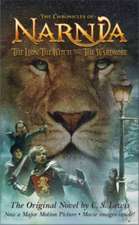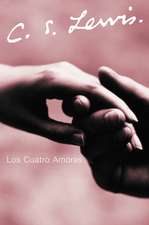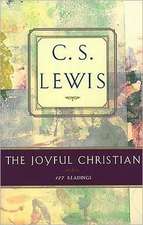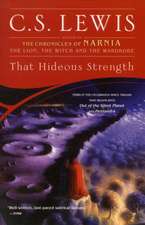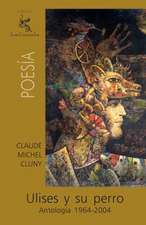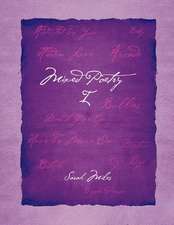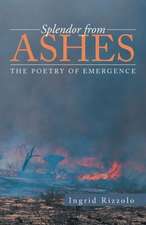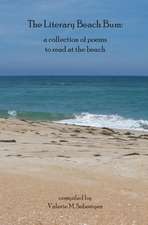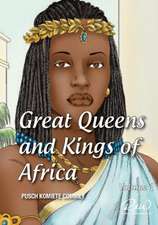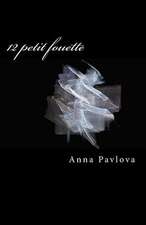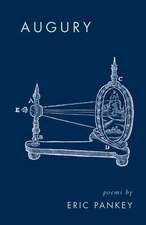Spirits in Bondage
Autor C. S. Lewisen Limba Engleză Paperback – 10 iul 2024
| Toate formatele și edițiile | Preț | Express |
|---|---|---|
| Paperback (5) | 34.37 lei 6-8 săpt. | |
| HarperCollins Publishers – 13 feb 2017 | 55.86 lei 3-5 săpt. | |
| ALPHA EDITION – 10 iul 2024 | 89.30 lei 3-5 săpt. | |
| WILDER PUBN – 28 feb 2023 | 34.37 lei 6-8 săpt. | |
| COSIMO CLASSICS – 31 oct 2005 | 62.32 lei 6-8 săpt. | |
| Book Jungle – 17 feb 2008 | 103.66 lei 6-8 săpt. | |
| Hardback (1) | 113.52 lei 6-8 săpt. | |
| Wilder Publications – mar 2023 | 113.52 lei 6-8 săpt. |
Preț: 89.30 lei
Nou
17.10€ • 17.64$ • 14.17£
Carte disponibilă
Livrare economică 30 ianuarie-13 februarie
Specificații
ISBN-10: 9361478834
Pagini: 62
Dimensiuni: 152 x 229 x 4 mm
Greutate: 0.11 kg
Editura: ALPHA EDITION
Textul de pe ultima copertă
In 1919, C. S. Lewis published his first book, Spirits in Bondage, under the pseudonym Clive Hamilton. Written while Lewis was a student at Oxford and during the First World War when he served at the front in France, Spirits in Bondage reflects the intellectual and spiritual struggles of a young man wounded by war and conflicted over faith. As he contemplates the nature of morality, love, the presence of evil, the possibility of God, and other profound questions, Lewis reveals a side of himself unfamiliar to many readers.
Descriere
A repackaged edition of the revered author’s first book—a collection of poems, written in the wake of World War I, in which the young intellectual and soldier wrestles with the perplexing polarities of life, including love and war, evil and goodness, and other complex dichotomies.
In 1919, C. S. Lewis—the great British writer, scholar, lay theologian, broadcaster, Christian apologist, and bestselling author of Mere Christianity, The Screwtape Letters, The Great Divorce, The Chronicles of Narnia, and many other beloved classics—published his first book, Spirits in Bondage, under the pseudonym Clive Hamilton. Written when Lewis was a student at Oxford and during the war when he served at the front in France, Spirits in Bondage reflects the intellectual and spiritual struggles of a young man wounded by war and conflicted over faith. As he contemplates the nature of morality, love, the presence of evil, the possibility of God, and other profound questions. Lewis reveals a side of himself unfamiliar to many readers.
Notă biografică
Clive Staples Lewis (1898-1963) was one of the intellectual giants of the twentieth century and arguably one of the most influential writers of his day. He was a Fellow and Tutor in English Literature at Oxford University until 1954, when he was unanimously elected to the Chair of Medieval and Renaissance Literature at Cambridge University, a position he held until his retirement. He wrote more than thirty books, allowing him to reach a vast audience, and his works continue to attract thousands of new readers every year. His most distinguished and popular accomplishments include Out of the Silent Planet, The Great Divorce, The Screwtape Letters, and the universally acknowledged classics The Chronicles of Narnia. To date, the Narnia books have sold over 100 million copies and have been transformed into three major motion pictures.
Clive Staples Lewis (1898-1963) fue uno de los intelectuales más importantes del siglo veinte y podría decirse que fue el escritor cristiano más influyente de su tiempo. Fue profesor particular de literatura inglesa y miembro de la junta de gobierno en la Universidad Oxford hasta 1954, cuando fue nombrado profesor de literatura medieval y renacentista en la Universidad Cambridge, cargo que desempeñó hasta que se jubiló. Sus contribuciones a la crítica literaria, literatura infantil, literatura fantástica y teología popular le trajeron fama y aclamación a nivel internacional. C. S. Lewis escribió más de treinta libros, lo cual le permitió alcanzar una enorme audiencia, y sus obras aún atraen a miles de nuevos lectores cada año. Sus más distinguidas y populares obras incluyen Las Crónicas de Narnia, Los Cuatro Amores, Cartas del Diablo a Su Sobrino y Mero Cristianismo.

